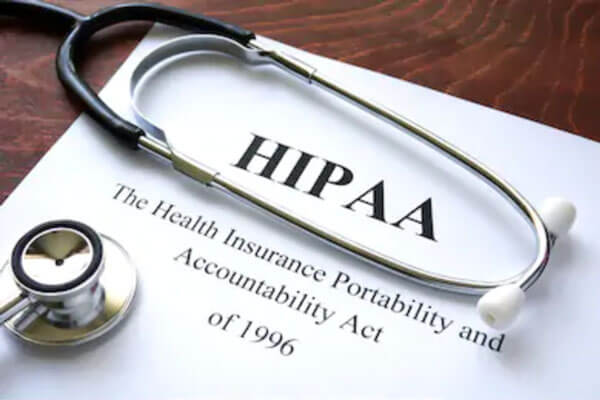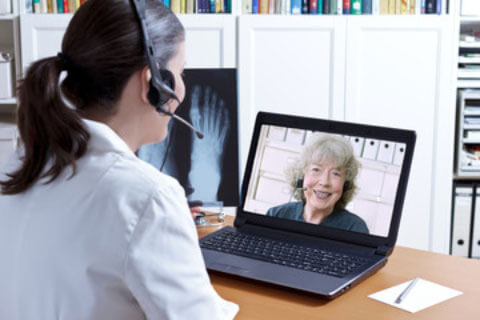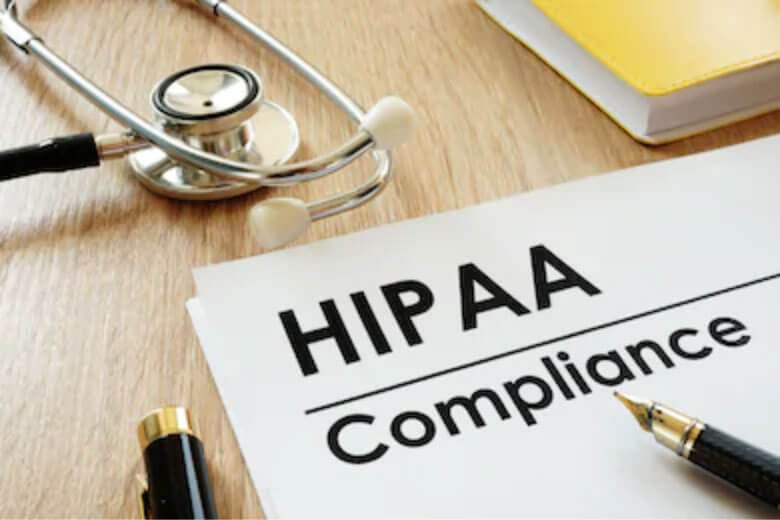Solutions
Products
Video Conferencing Webinar Industries
Education HR / Interviews Telemedicine Health Care Lawfirms ClassroomFeatures
If you work in the healthcare industry, you’re already aware of the need for HIPAA compliance. Most clinical providers have processes in place to ensure HIPAA compliance in all applicable areas of their practice.
However, if you require video conferencing to deliver care, your technology solution must be consistent with the rules of HIPAA. How can you choose the best HIPAA compliant web conferencing? To help you address this question, allow us to break down our discussion into several key points:

In 1996, the Health Insurance Portability and Accountability Act, or HIPAA, set the standard for protecting sensitive patient data. The law was particularly important within the context of the 2009 HITECH law, which facilitated the implementation of electronic health records (EHR) and the transition to digital patient data. Under HIPAA, all patient data became protected health information (PHI). HIPAA rules require healthcare providers to take steps to protect the flow of PHI between patients, providers, and payers. The goal of the law was to strike a balance between this flow of information while ensuring the privacy of patients.
Consequently, for companies who deal with protected health information, ensuring that the procedures they have in place are HIPAA compliant is vital.

Healthcare is a patchwork of complex care delivery workflows, and HIPAA compliance affects most of these entities and providers.
For example, anyone who provides treatment, payment, or operations within a healthcare setting needs to ensure that their procedures and technologies are HIPAA compliant. From healthcare systems to hospitals and medical practices, as well as insurance payers, credit card companies, credit and collection agencies, and more, are all affected by and must strive for strict HIPAA compliance.
Any business associates who have access to patient information, as well as other entities like healthcare subcontractors, are also affected by HIPAA compliance. All of these organizations and individuals must take the necessary steps to protect PHI to comply with HIPAA rules.
Since HIPAA was signed into law, the healthcare delivery landscape has changed radically. The biggest change to HIPAA compliance has been the transition of healthcare organizations to digital technology. Paper charting is gone and PHI is now stored and transmitted electronically through the Internet. Even care delivery has transitioned to the cloud; telehealth, or clinical care delivered through a secure video conference is rising in popularity. How does HIPAA compliance work in the digital era? How can providers ensure HIPAA compliant video conferencing when serving their patients today?

While specific HIPAA rules govern traditional in-office healthcare delivery, there is a subset of HIPAA particularly relevant in the digital era. Congress planned for the digital transition of healthcare PHI with the subset of the HIPAA legislation called the HIPAA Security Rule.
The HIPAA Security Rule governs the digital flow of data in healthcare delivery. Compliance with these rules requires any PHI created, received, maintained, or transmitted to remain confidential and protected. It requires healthcare providers, no matter their size, to ensure the data is safeguarded from breach or threat. Every employee that comes in contact with digital PHI must remain in compliance with the HIPAA Security Rule.
The problem is that cybersecurity continues to pose a real and danger for digital data. The HIPAA Journal says the typical rate of cyber breach on protected healthcare data is one incident per day in the United States. When you consider that each breach could affect hundreds or thousands of patient records and that each incident costs big money in HIPAA compliance fines, it’s clear that healthcare providers should be increasingly concerned about data security. Data breaches cost healthcare providers an average of $6.5 million annually — and those numbers are rising.
But the cost of one data breach goes far beyond HIPAA compliance fines. When healthcare consumer data is breached, the damage to the clinical provider’s reputation is also high.
It is for all these reasons that HIPAA secure video conferencing is so important to your clinical team. As healthcare providers increase their use of video conferencing to provide care, they must also exercise caution in selecting a HIPAA compliant video platform to ensure patient data is kept safe.

We live in an age where an increasing amount of patient data is stored and transmitted on digital systems. Even though this boosts efficiency and often increases healthcare outcomes within the industry, it certainly poses issues when it comes to protecting patient information. Despite the compelling case for digitization, the reality is that electronic data can be breached or leaked in a way that physical files cannot.
This is particularly true as an increasing number of healthcare providers are selecting virtual patient care delivery over the traditional office visit. Telehealth is normalizing for both patients and providers, with a number of benefits including lowered costs and increased convenience and access to care. But the use of video conferencing to provide care over the Internet requires healthcare practitioners to take steps to ensure HIPAA compliance.
HIPAA compliant video conferencing is crucial to many industries, but especially in the world of healthcare delivery. Digital technology tools can improve patient satisfaction and impact care delivery in the following ways:
The return on investment for providers and patients is high. These services can:
But each of these benefits comes with risks associated with HIPAA non-compliance. How can your healthcare organization reap the benefits of telehealth while mitigating the risks and staying HIPAA compliant? What factors can help a healthcare professional or company choose the best HIPAA compliant video conferencing for their needs?
When choosing a HIPAA compliant video platform or free HIPAA compliant video conferencing tool, healthcare providers should look for encryption, direct contact with patients, and digital security.
The best HIPAA compliant web conferencing solutions on the market are encrypted. If you are not familiar with the world of technology, you may wonder what encryption is. The process of encryption scrambles video packets of data when they are in transit across the web. This digitized data, which travels from one place to another, can't be understood until it reaches the recipient's device and merges with their video software. At this point, the data is decrypted, and the recipient can fully understand the information.
Why is this is a vital factor when choosing HIPAA compliant web conferencing? Certainly, the threat of a data breach and the ensuing fines for non-compliance could be harmful to your practice. But the effects on a patient can be just as detrimental.
Imagine that you are a patient sitting in the treatment room of a specialist. How do you feel? Granted, it's often not the easiest and calmest moment in your life when sitting in front of a medical professional. But, as a patient, you trust that your provider will take care of you, make you well, or improve your condition.
It’s unlikely that the patient worries about their private health data. But they should. What could happen if the private news of your healthcare condition reached your employer? What could happen if your social security number, address, or other personal identification data became open to the public? Would you trust your healthcare provider if your personal data or healthcare status was leaked?
Meeting with a medical professional over a video conferencing call should be able to give patients the same sense of security and confidence. Each patient encounter should have all the necessary security measures in place to give you all the peace of mind you need. Encryption plays a major role in creating this secure environment.
MegaMeeting, as a browser-based solution, works on nearly every device in use today from smartphones and tablets to desktop computers and laptops. This ensures that medical professionals will be able to contact the vast majority of their patients directly, without any need for the patient to travel to a separate location.
The direct one-to-one (or, if a panel of health professionals is needed, one-to-several) connections between patients and their healthcare providers make it easy for patients to communicate safely and securely in the privacy and comfort of their own homes, where they will be more comfortable to discuss their issues over a HIPAA-compliant video platform.
Today, doctors and other clinical care providers frequently record their patient video conferences to ensure that a history of care is created for the patient. However, this process also presents several significant risks. Healthcare providers must ensure security of their video conferencing service and should require their technology provider to offer encryption on data while it is at rest and during transmission over the Internet.
The most secure HIPAA compliant video chat services will record clinical encounters in the safest way possible and on any device. Healthcare providers must work with their technology partner to ensure HIPAA compliant video conferencing iPad devices, on mobile, desktop, or any other digital device the patient or clinical provider uses. Storage of each patient encounter should always follow the highest levels of HIPAA compliance, including the use of encryption and browser-based, secure video chat.
Ultimately, HIPAA compliance exists for a very important reason; protecting the patient and their confidential information is your priority, and always should be. As telehealth enters the mainstream, and more patients choose the virtual visit over the traditional in-office encounter, healthcare providers will be increasingly tasked to follow HIPAA compliance no matter the venue or method of care delivery.
When looking for the best HIPAA compliant video conferencing, it is important to understand compliance in every avenue of care delivery, the workflows that are affected, as well as knowing which entities and bodies are responsible for following these important rules. HIPAA compliance protects the patient — and your video conferencing solution should work hand-in-hand with this compliance.
HIPAA secure video conferencing is not only possible but also likely when you understand the compliance rules and can compare technology providers by these standards. Complying with government PHI rules starts with the right technology to offer the best services for your patients.